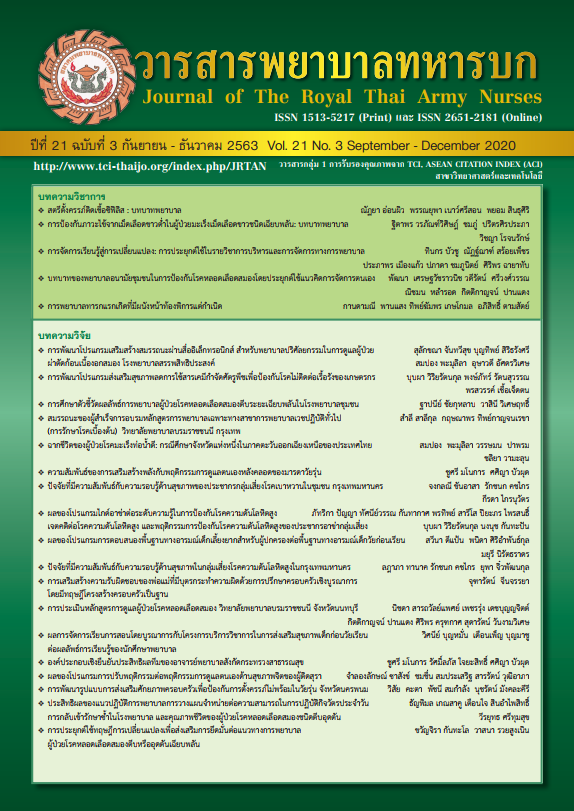The Effects of a Program for Parents Responding to Children with Difficult Temperament on The Temperament of Preschool Children
Keywords:
Program, Children with difficult temperament, Self-regulation, Responding to children temperamentAbstract
The purpose of this quasi-experimental study was to examine the effects of a program for parents responding to children with difficult temperament. Parents meet the inclusion criteria were randomly assigned to the experimental and control groups with 40 participants in each group. The data were collected using the assessment for temperament form for Parents. Data were analyzed using descriptive statistics and t-test.
The results indicated that the mean posttest score for the assessment for temperament in the experimental group after participating in the program was statistically significantly lower than the mean pretest score, and the mean posttest score in the experimental group after participating in the program was statistically significantly lower than the mean control group score (p <.001). The program for parents responding to children with difficult temperament helped parents in improving their self-regulation skill and enhancing ability to respond to their children with difficult temperament properly.
Downloads
References
Thomas A, Chess S, Birch H. The origin of personality. Scientific American.1970;223(22): 102-109.
Siriumpunkul P, Wacharasin C, Duangpaeng S. Being a Parent of a Difficult Toddler. Nursing Journal. 2015;42(2):72-82. (in Thai).
Ekathikhomkit N. Child temperament and Parental stress. The Journal of Psychiatric nursing and mental health. 2017;31(3):17-29.
Korat O. Mothers’ and teachers’ attributions of the academic functioning of Israeli second graders: A comparison between social groups. Early Child-hood Research Quarterly. 2004; 19:485–501.
Hanington L, Ramchandani P, Stein A. Parental depression and child temperament: Assessing child to parent effects in a longitudinal population study. Infant & Behavior Development. 2010;33(1):88-95.
Karreman A, de Haas S, van Tuijl C, van Aken MA, Dekovic M. Relations among temperament, parenting and problem behavior in young children. Infant behavior and development. 2010;33(1):39-49.
Sanson A, Hemphill SA, Yagmurlu B, McClowry S. Temperament and social development. The Wiley-Blackwell handbook of childhood social development. 2011:227-245.
Chaonchom A, Chaimongkol N, Pongjaturawit Y. Predictors of Attachment between Adolescent Fathers and their Infants. J Prapokklao Hosp Clin Med Educat Center. 2015;32(1):34-43 (in Thai).
Saudino KJ. Behavioral genetics and child temperament. Journal of developmental and behavioral pediatrics. 2005;26(3):214.
Avant TS, Gazelle H, Faldowski R. Classroom emotional climate as a moderator of anxious solitary children’s longitudinal risk for peer exclusion: A child × environment model. Developmental Psychology. 2011;47(6):1711-27.
Rettew DC, McKee L. Temperament and its role in developmental psychopathology. Harvard review of psychiatry. 2005;13(1):14-27.
Caspi A. The child is father of the man: personality continuities from childhood to adulthood. Journal of personality and social psychology. 2000;78(1):158.
Lahey BB. Commentary: Role of temperament in developmental models of psychopathology. Journal of Clinical Child and Adolescent Psychology. 2004;33(1):88-93.
Tuson K. Somboontanont W. Leelahakul V. Pinyopasakul W. Relationship Between Family Hardiness, Family Coping and Well-being of Family Members of Elders with Physical Disability. Journal of The Royal Thai Army Nurses. 2017;18(1):93-101. (in Thai).
Wadvaree S. Problems of Child Rearing and Community Welfare Management: Case Studies of Four Communities in Wangthonglang District, Bangkok. Romphruek Journal. 2017;35(2):99-118. (in Thai).
Lorber MF, Egeland B. Parenting and infant difficulty: Testing a mutual exacerbation hypothesis to predict early onset conduct problems. Child Development. 2011;82(6): 2006-20
Oakland T, Joyce D. Temperament-based learning styles and school-based applications. Canadian Journal of School Psychology. 2006;19(1/2):59-74.
Séguin DG, MacDonald B. The role of emotion regulation and temperament in the prediction of the quality of social relationships in early childhood. Early child development and care. 2018;188(8):1147-63.
Mrug S, Windle M. Mediators of neighborhood influences on externalizing behavior in preadolescent children. Journal of Abnormal Child Psychology. 2009;37(2):265-80.
Patterson GR, DeGarmo D, Forgatch MS. Systematic changes in families following prevention trials. Journal of abnormal child psychology. 2004;32(6):621-33.
Belsky J, Hsieh K, Crnic K. Mothering, fathering, and infant negativity as antecedents of boys’ externalizing problems and inhibition at age 3 years: Differential susceptibility to rearing experience? Development and Psychopathology. 1998;10(2):301–19.
Kiff CJ, Lengua LJ, Zalewski M. Nature and nurturing: Parenting in the context of child temperament. Clinical Child and Family Psychology Review. 2011;14(3):251–301.
Siriumpunkul P. Effeectiveness of Parental Competencies and development Stimulation Program by Playing on the Knowledge, Parental Child-Care, and Adaptive behavior of children with Autism. Journal of The Royal Thai Army Nurses. 2015;20(1):311-320. (in Thai).
Siriumpunkul P, Sungthog C, Keebang J, Chunsuwan I, Lerthatasilp T. The Developmental Model for Enhancing Quality of Life among Preschool Children with Difficult Temperament. Pathumthani. 2018. (in Thai).
Van J, Mesman J, Van MH, Bakermans MJ, Juffer F, Stolk MN, Koot HM, Alink LR. Attachment-based intervention for enhancing sensitive discipline in mothers of 1-to 3-year-old children at risk for externalizing behavior problems: A randomized controlled trial. Journal of consulting and clinical psychology. 2006; 74(6):994.
Dadds MR, Roth JH. Prevention of anxiety disorders: Results of a universal trial with young children. Journal of Child and Family Studies. 2008;17(3):320-335.
Sanders MR, Mazzucchelli TG. The promotion of self-regulation through parenting interventions. Clinical child and family psychology review. 2013;16(1):1-17.
Bodenmann G, Cina A, Ledermann T, Sanders MR. The efficacy of the Triple P-Positive Parenting Program in improving parenting and child behavior: A comparison with two other treatment conditions. Behavior research and therapy. 2008;46(4):411-427.
Leung C, Sanders MR, Leung S, Mak R, Lau J. An outcome evaluation of the implementation of the triple P-Positive Parenting Program in Hong Kong. Family process. 2003;42(4): 531-544.
Matsumoto Y, Sofronoff K, Sanders MR. The efficacy and acceptability of the Triple P-Positive Parenting Program with Japanese parents. Behavior Change. 2007;24(4):205-218.
Chess S. Thomas A. Goodness of fit: Clinical applications for infancy through adult life. Philladelphia, PA : Bruner/Mazel. 1999.
Downloads
Published
How to Cite
Issue
Section
License
บทความหรือข้อคิดเห็นใดใดที่ปรากฏในวารสารพยาบาลทหารบกเป็นวรรณกรรมของผู้เขียน ซึ่งบรรณาธิการหรือสมาคมพยาบาลทหารบก ไม่จำเป็นต้องเห็นด้วย
บทความที่ได้รับการตีพิมพ์เป็นลิขสิทธิ์ของวารสารพยาบาลทหารบก
The ideas and opinions expressed in the Journal of The Royal Thai Army Nurses are those of the authors and not necessarily those
of the editor or Royal Thai Army Nurses Association.






